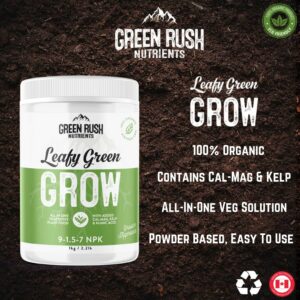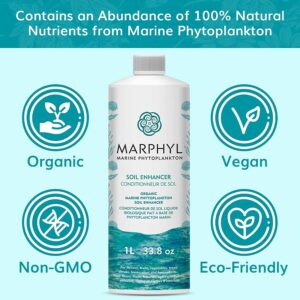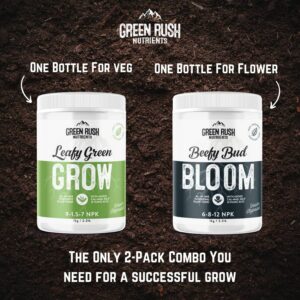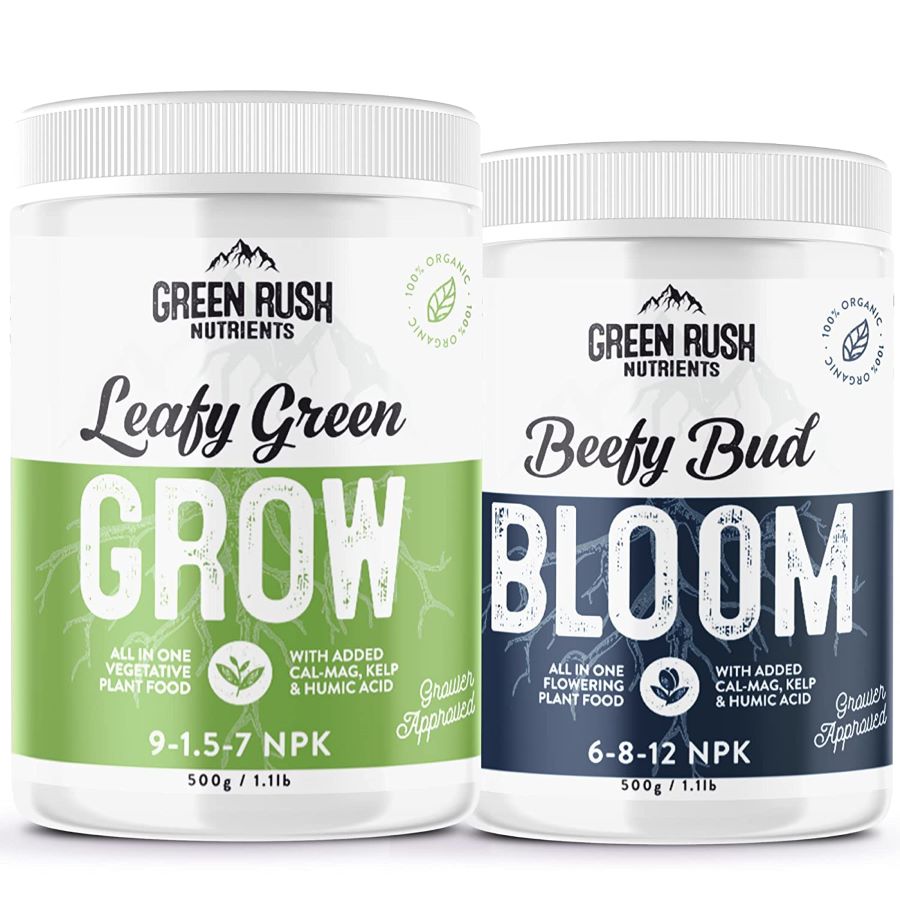Choosing the Best Hydroponic Nutrients: A Comprehensive Guide
Introduction
Hydroponics is a popular and efficient method of growing plants without soil.
One of the critical factors in achieving successful hydroponic cultivation is selecting the proper nutrients for your plants.
In this comprehensive guide, we will explore the various aspects to consider when choosing hydroponic nutrients and provide you with the knowledge necessary to make an informed decision.
By understanding the importance of hydroponic nutrients and the factors that influence their selection, you can maximize the growth and yield of your hydroponic crops.
Provo Green Products is your reliable source for discovering sustainable products that positively impact your life and the environment.
With extensive experience in manufacturing, trades, and construction, Provo Green Products thoroughly researches each product before providing accurate and up-to-date information on its sustainability.
You can trust that you’re getting trustworthy insights to make informed choices whether you’re looking for solar products, electric bikes, eco-friendly products, renewable energy solutions, etc.
Provo Green Products is your go-to destination for finding the right green products for your lifestyle.
Disclosure: We may earn a small commission if you click on one of our links.
This does not affect the pricing of the product whatsoever.
Understanding Hydroponic Nutrients
To grasp the significance of hydroponic nutrients, it’s essential to comprehend the role they play in plant growth. In hydroponic systems, plants rely solely on the nutrients provided through the nutrient solution.
These nutrients are classified into two categories: macronutrients and micronutrients.
Macronutrients include elements such as nitrogen (N), phosphorus (P), and potassium (K), while micronutrients consist of trace elements like iron (Fe), zinc (Zn), and manganese (Mn).
Each nutrient is crucial for specific plant functions, and a well-balanced nutrient solution ensures optimal growth.
Factors to Consider when Choosing Hydroponic Nutrients
Several factors should influence your decision when selecting hydroponic nutrients.
First and foremost, consider the specific nutrient requirements of the plants you are growing.
Different plants have varying needs for macronutrients and micronutrients, and tailoring the nutrient solution to meet these requirements is vital for their development.
Additionally, consider the nutrient formulations and ratios offered by different products.
The ideal nutrient formulation will give your plants the appropriate balance of macronutrients and micronutrients.
Another crucial factor to consider is the pH level and nutrient availability.
The pH of the nutrient solution affects nutrient uptake by the plants. Most plants prefer a slightly acidic pH range, typically between 5.5 and 6.5.
Ensuring the compatibility of the nutrients with your desired pH range is essential to prevent nutrient deficiencies or toxicities.
Furthermore, some nutrients may be more readily available to plants within specific pH ranges, so understanding the relationship between pH and nutrient availability is crucial.
You may also need to decide between organic and synthetic options when choosing hydroponic nutrients.
Organic nutrients are derived from natural sources and provide a more sustainable and environmentally friendly choice.
Synthetic nutrients, on the other hand, are chemically formulated and offer precise control over nutrient ratios.
Consider your preferences, the type of crops you are growing, and any specific regulations or certifications you aim to meet when choosing.
Finally, budget considerations should also factor into your decision-making process.
Hydroponic nutrients come in a wide range of prices, and it’s essential to strike a balance between cost-effectiveness and product quality.
Investing in high-quality nutrients can lead to better plant growth and higher yields in the long run.

Popular Types of Hydroponic Nutrients
Hydroponic nutrients are available in various forms, each designed to meet specific plant needs.
General-purpose nutrient solutions are suitable for multiple plants and growth stages.
They provide a balanced mix of macronutrients and micronutrients to support plant growth.
Specialized nutrient blends are also available, explicitly formulated for different growth stages, such as vegetative growth or flowering.
These tailored nutrients provide the optimal nutrient ratios required during each phase of plant development.
Moreover, some nutrient brands offer products for specific plant types, such as leafy greens, herbs, or fruiting plants.
These specialized formulations consider each plant type’s unique nutritional requirements, providing a targeted approach to nutrient delivery.
Additionally, you can choose between liquid and powder nutrients. Liquid nutrients are convenient to use and provide immediate availability to plants, while powder nutrients offer longer shelf life and ease of storage.
Evaluating Nutrient Brands and Products
When choosing hydroponic nutrients, not all brands and products are created equal. It’s essential to conduct thorough research and evaluate different options before deciding.
Start by researching reputable nutrient brands with a quality and customer satisfaction track record. Look for brands that have established themselves in the hydroponics industry and have positive reviews from experienced growers.
Reading product labels is crucial in understanding a specific product’s nutrient analysis and composition.
Please pay attention to the nutrient ratios and ensure they align with your plants’ requirements.
The label should also provide information on the nutrient sources and any additional additives or supplements in the formulation.
Familiarize yourself with the terminology and terminology commonly used in hydroponic nutrient labeling to make an informed choice.
Customer reviews and recommendations can be valuable sources of information. Seek feedback from other growers who have used the products you are considering.
They can provide insights into the effectiveness, ease of use, and overall nutrient satisfaction.
However, it’s essential to consider a range of opinions and experiences to understand the product’s performance comprehensively.
Price is an important consideration but should not be the sole determining factor.
While it’s tempting to opt for the most affordable option, remember that the quality of nutrients can significantly impact plant growth and yield.
Investing in higher-quality nutrients may result in healthier plants, increased productivity, and reduced risk of nutrient imbalances or deficiencies.
Consider nutrient cost as a long-term investment in the success of your hydroponic system.

Nutrient Delivery Systems
Hydroponic systems employ various methods for delivering nutrients to plants.
Standard designs include drip irrigation, nutrient film technique (NFT), ebb and flow, and deep water culture (DWC).
When choosing hydroponic nutrients, it’s essential to consider the product’s compatibility with your preferred delivery system.
Different nutrient formulations may have additional requirements in terms of nutrient delivery.
For example, some liquid nutrients may be suitable for drip irrigation systems, while others may be designed specifically for recirculating systems.
Understanding the compatibility between the nutrient solution and the delivery system will ensure proper nutrient distribution and prevent clogging or blockages.
Nutrient Management and Troubleshooting
Proper nutrient management is crucial for maintaining healthy plants and maximizing growth potential.
Once you have chosen the best hydroponic nutrients for your system, monitoring and adjusting the nutrient solution as your plants grow is essential.
Maintaining the appropriate nutrient solution strength and pH levels is vital.
Regularly check the nutrient solution’s electrical conductivity (EC) to ensure it falls within the optimal range for your plants.
EC meters can measure the concentration of dissolved salts in the solution, indicating its strength.
Adjust the nutrient solution by adding more nutrients or diluting with water as needed to maintain the desired EC level.
Monitoring the pH of the nutrient solution is equally important. pH levels can affect nutrient availability and uptake by plants.
Use a pH meter to measure the acidity or alkalinity of the solution and adjust as necessary to maintain the desired pH range. pH adjustment can be achieved by adding pH-up or pH-down solutions to raise or lower the pH.
Recognizing the signs of nutrient deficiencies and toxicities is crucial for troubleshooting nutrient-related problems.
Symptoms such as yellowing leaves, stunted growth, or leaf discoloration can indicate nutrient imbalances.
Consult nutrient deficiency charts or resources specific to your growing crops to identify and address any issues promptly.

Organic Hydroponic Nutrient Options
If you prefer an organic approach to hydroponics, organic nutrient options are available in the market.
Organic hydroponic nutrients are derived from natural sources and are free from synthetic chemicals and pesticides.
They provide a more sustainable and environmentally friendly choice for hydroponic growers.
Organic hydroponic nutrients can be derived from various sources such as compost teas, worm castings, fish emulsions, or seaweed extracts.
These natural ingredients contain beneficial microorganisms, enzymes, and organic compounds that promote plant growth and enhance nutrient uptake.
They work harmoniously with the hydroponic system, providing a balanced and natural nutrient profile.
When considering organic hydroponic nutrients, look for certified organic products by reputable certification bodies.
Organic certifications ensure that the nutrients meet specific standards for organic production, including the absence of synthetic additives and adherence to sustainable practices.
Some standard organic certifications include USDA Organic and OMRI (Organic Materials Review Institute) listings.
While organic hydroponic nutrients offer numerous benefits, it’s important to note that they may have nutrient availability and stability limitations.
Organic nutrients may require additional microbial activity in the root zone to break into forms that plants can readily absorb.
They may also be less concentrated than synthetic nutrients, requiring larger volumes for application.

Nutrient Supplements and Additives
In addition to primary hydroponic nutrients, various nutrient supplements, and additives can enhance plant health, growth, and productivity.
These supplements can provide additional micronutrients, beneficial microbes, enzymes, hormones, or growth stimulants supporting specific plant development aspects.
Growth stimulants and hormones can promote root development, flowering, or fruiting, depending on the stage of plant growth.
Enzymes can break down organic matter and enhance nutrient availability.
For example, beneficial microbes, such as mycorrhizal fungi and rhizobacteria, can enhance nutrient uptake and improve plant resistance to diseases.
When considering nutrient supplements and additives, it’s essential to understand the specific needs of your plants and how these products can address those needs. Research each supplement or additive’s benefits and potential risks and ensure they are compatible with your chosen hydroponic system and nutrient solution.
Conclusion
Choosing the best hydroponic nutrients is a critical aspect of successful hydroponic cultivation.
By considering the specific nutrient requirements of your plants, understanding the factors that influence nutrient selection, and evaluating different nutrient brands and products, you can make an informed decision that will optimize plant growth and yield.
Remember to consider the nutrient formulations, ratios, pH compatibility, and budgetary considerations when choosing hydroponic nutrients.
Explore different types of nutrients, such as general-purpose solutions or specialized blends, to cater to the specific growth stages and plant types you are cultivating.
Additionally, be aware of organic nutrient options if you prefer a more sustainable approach to hydroponics.
Ensure proper nutrient management by monitoring and adjusting the nutrient solution’s strength and pH levels as plants grow.
Familiarize yourself with the signs of nutrient deficiencies and toxicities to troubleshoot any issues promptly.
Finally, consider nutrient supplements and additives that benefit your plants’ overall health and productivity.
By following this comprehensive guide and selecting the best hydroponic nutrients for your system, you can create an optimal environment for plant growth, leading to thriving crops and a successful hydroponic gardening experience.
Stay in Touch!
I’am a dedicated entrepreneur with many years of experience and an integrity-driven individual who is highly motivated to succeed. Leveraging extensive expertise in manufacturing, construction, and various trades, we can provide a solid foundation for sustainable living. Our meticulous research process guarantees that our information about each product is precise and current, allowing you to make informed decisions. A deep understanding of business operations empowers me to consistently implement improvements that result in ongoing success. Visit site.

